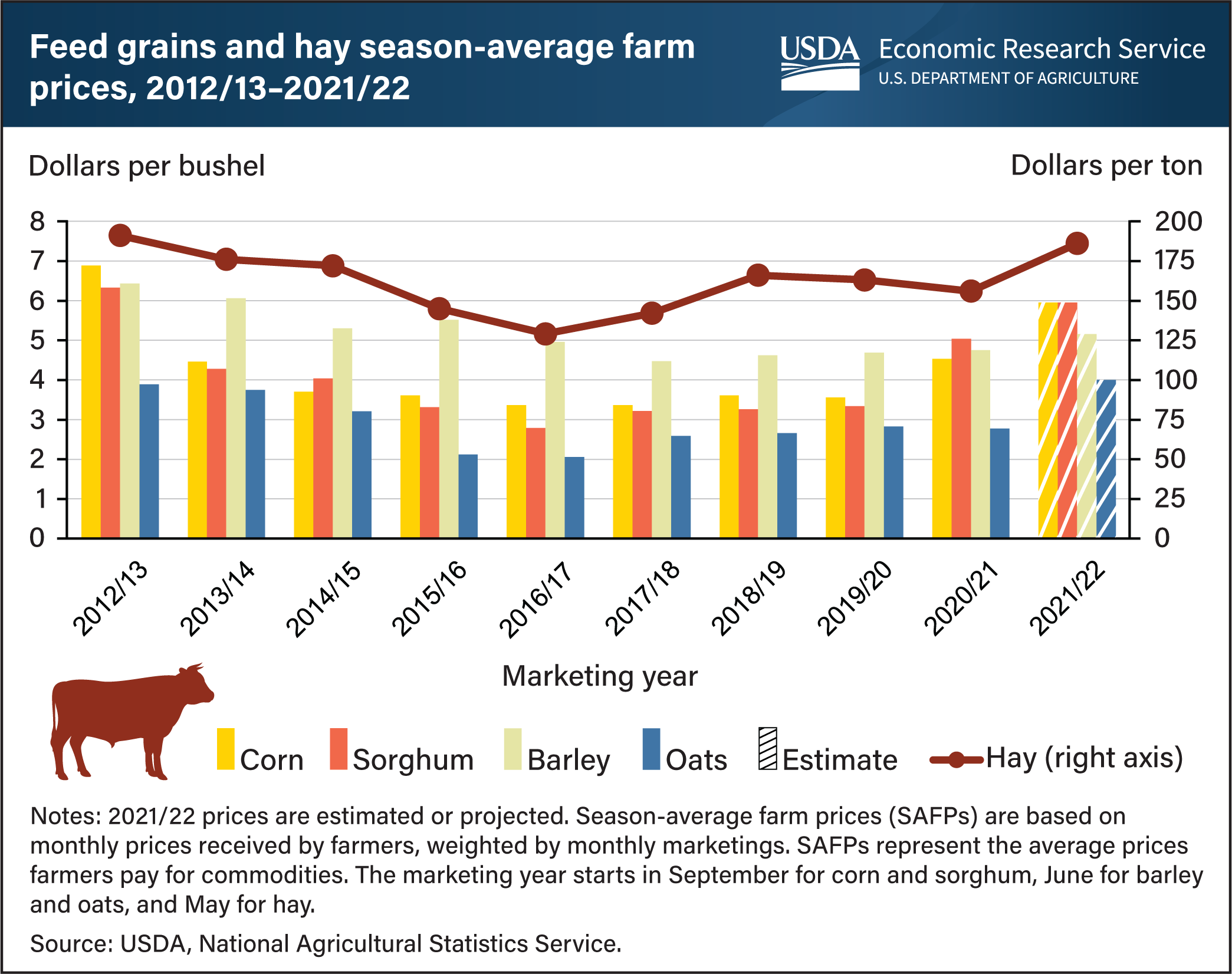Beef cattle producers face higher input costs, with feed prices up 16 percent since 2021
- by LaPorchia A. Collins
- 8/15/2022

Annual U.S. retail prices for beef and veal are projected to rise 6 to 7 percent in 2022 relative to 2021. In May 2022, the farmer’s share of the retail value of beef also increased year over year, but rising input costs, especially for cattle feed, may limit farmers’ ability to benefit from higher cattle prices. Based on the USDA, Economic Research Service (ERS) commodity cost and return estimates, feed expenses are the largest operating cost for cow-calf producers, comprising 75 percent of these costs in 2021. Prices for beef cattle feed were up 16 percent in May 2022 relative to May 2021. High fertilizer prices have contributed to increased feed costs while drought conditions have squeezed feed grain and hay supplies. The 2021/22 season-average farm price (SAFP) for corn—the primary grain fed to cattle—is currently projected at $5.95 per bushel, the highest SAFP since the 2012/13 marketing year. Like corn, the SAFPs for other feed grains including sorghum, oats, and barley are projected to increase in 2021/22 relative to 2020/21. The SAFP for hay, an important supplement to cattle grazing, is estimated to be 16 percent higher in 2021/22 compared to the average price over the preceding 9 years. As of August 9, 2022, it was estimated that 46 percent of hay is growing in areas experiencing drought. In addition to rising feed costs, elevated diesel fuel and farm labor costs have also put pressure on farmer margins. This chart appears in the ERS Livestock, Dairy, and Poultry Outlook, July 2022.

